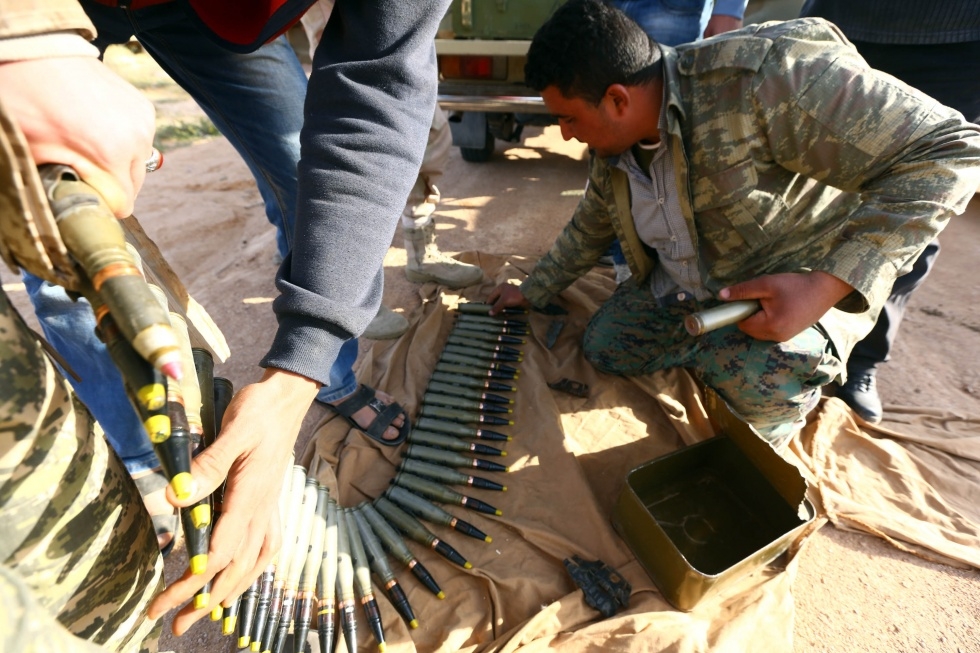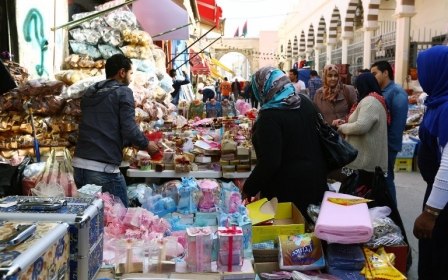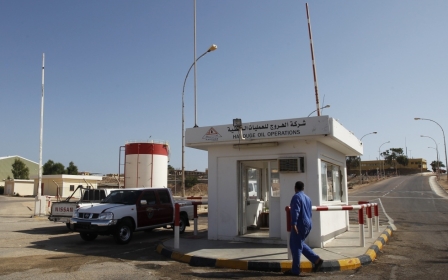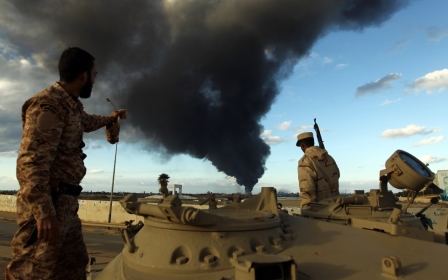US, Europe demand Libya ceasefire, as embassies attacked in Tripoli

The United States and European powers have urged warring factions in Libya to agree an “unconditional” ceasefire at talks restarting on Monday, as two foreign embassies were attacked by militants claiming to be from the Islamic State group.
A bomb exploded outside the Moroccan embassy in the capital Tripoli on Monday morning, causing no casualties but damaging nearby cars, according to a security official who spoke to AFP.
On Sunday, unidentified gunmen opened fire on South Korea’s embassy compound from a passing car, killing two Libyan guards and injuring a third person. The South Korean foreign ministry confirmed the attack and said the three embassy staff in the building escaped unhurt.
IS claimed responsibility for the attack on South Korea’s embassy, according to the SITE Intelligence Group, and Twitter accounts affiliated with the militancy said they were also responsible for the blast at the Moroccan diplomatic mission. However, neither claim could be verified.
Meanwhile, UN-brokered talks on forming a national unity government for Libya are due to resume in Algeria on Monday, with all sides urged to set aside differences and agree a deal.
“We strongly urge all participants to the dialogue to negotiate in good faith and use this opportunity to finalise agreements on the formation of a national unity government,” read a statement by the foreign ministers of France, Germany, Italy, Spain, Britain and the United States.
“Only through compromise can Libya move toward a more secure stable, and prosperous future,” they said.
Libya has been in the midst of a brutal civil conflict since the end of the 2011 uprising that saw the ousting of long-time leader Muammar Gaddafi. Rival cities, tribes, militias and governments have all vied for control of Africa’s largest oil reserves.
The June 2014 popularly elected House of Representatives (HoR) relocated to the eastern cities of Tobruk and Bayda in August, after the Misrata-led alliance of Libya Dawn seized control of the capital Tripoli and reformed the former administration of the General National Congress (GNC).
The GNC established a “salvation government” to challenge the HoR – which they accuse of trying to undermine the 2011 uprising – while the Libya Dawn coalition of militias have continued to battle HoR-allied military forces led by Khalifa Haftar, a former Gaddafi-era general who returned to Libya in 2011 to aid the rebel uprising after more than 20 years exile in the US.
Both sides have been accused of corruption and economic failings.
“The two governments are two faces of the same coin,” an analyst told the Financial Times on Sunday, requesting anonymity for fear of reprisals against their family in Tripoli.
The self-declared GNC government has accused its former leader Omar al-Hassi, sacked in March, of overestimating surplus budget funds he said amounted to 50bn ($36.5bn) Libyan dinars when they were actually around 3.7bn ($2.7bn) dinars.
HoR Prime Minister Abdullah al-Thinni has said that his eastern-based government have only been able to pay its salaries, in the absence of access to state funds, by securing a loan of 750mn dinars ($535mn) from the country’s Commercial Bank, according to the Financial Times.
In an attempt to gain control of state assets, Thinni has moved to establish a new National Oil Corporation (NOC) and Central Bank in the east. He recently announced plans to open a bank account in the United Arab Emirates – a close ally of the HoR – to process the payments for the new oil ministry.
Thinni has warned companies from dealing with the “illegitimate” Tripoli-based NOC, which has been viewed by the UN, US, and Europe as having remained independent in managing Libya’s oil wealth throughout the ongoing civil conflict.
Oil accounts for 95 percent of state revenues in Libya. Output has plummeted from 1.6mn barrels per day prior to the 2011 uprising to around just 600,000 now.
Analysts have warned that the political battle for control of Libya’s oil resources could plunge the already embattled hydrocarbon market into further woes.
“International buyers will be concerned about who they can legitimately deal with,” Robin Mills, an analyst at the Dubai-based Manaar Energy Consulting, told Bloomberg.
New MEE newsletter: Jerusalem Dispatch
Sign up to get the latest insights and analysis on Israel-Palestine, alongside Turkey Unpacked and other MEE newsletters
Middle East Eye delivers independent and unrivalled coverage and analysis of the Middle East, North Africa and beyond. To learn more about republishing this content and the associated fees, please fill out this form. More about MEE can be found here.




